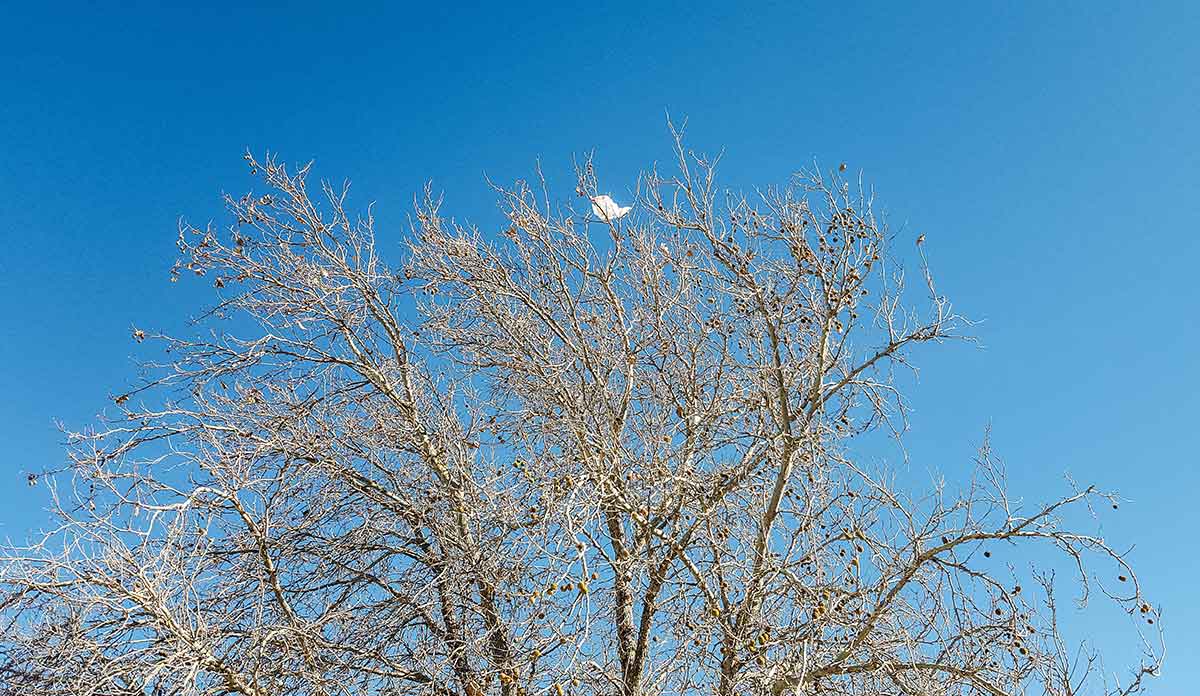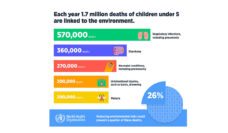Crinkly plastic bags line the ceiling and walls on the second floor of Erie’s Tom Ridge Environmental Center, obscuring the room’s open space and beautiful hardwood beams. What one might imagine to be the result of a wind storm is in-fact a display of a week-long collection effort conducted by 20 fourth graders. Forced to face the sight of trashed plastic up close and indoors, the display brings public awareness around plastic’s ubiquitous polluting effects in our environment.
Single-use plastic bags are tough, waterproof bags, with a high strength to weight ratio. Primarily made from fossil fuels, plastic bags’ aerodynamic composition makes them a number one flyaway issue at landfills, and lack of biodegradability means they become permanent features to the landscapes they litter, with well-known effects on marine life.
In 2014, Americans used over 100 billion shopping bags, each with an average life-span of 12 minutes.
In 2014, Americans used over 100 billion shopping bags, each with an average life-span of 12 minutes. Consumers overutilize plastic bags because they are free. Although local governments have the primary responsibility in managing municipal solid waste (MSW) they are limited in their power to restrict producers in their production of plastic bags. Therefore, local governments are striving to improve management over their MSW through the imposition of ordinances and regulations. Dr. Travis Wagner conducted a study to examine the effectiveness of various techniques used by local governments to reduce single-use shopping bags. These approaches included: bans, taxes and fees, specified bag design, mandated retailer take back and consumer education.
Prohibiting retailers from selling single-use bags is an effective method of reducing consumption and litter. Significant decreases in plastic bag residential waste and use are often accompanied by an increase in consumption of reusable paper bags, which still contribute to waste. Imposing fees on plastic bags, framed as a ‘tax’, also decreases use among consumers, reducing point-of-sale consumption. Fees are easy to enforce, and profits gained from sales can be used to cover the increased administrative cost for regulations. Another regulatory approach is to specify the bag design, altering specifications of thickness and composition to increase reuse and improve sustainability. However this approach can backfire. Manufacturers produce bags to minimally meet standard requirements, yet hardly improve reusability or sustainability of their products. Mandated retailer take-back can increase recycling a little cost, however rely on consumer participation. Consumer education can be difficult to enforce and maintain.
The state of California is number one in the nation for local regulation of plastic bag use, followed second by Massachusetts.
Banning plastic bags while imposing a fee on reusable paper bags has been instituted across California. In Los Angeles County, researchers found this combination of methods influenced 47% of customers to purchase reusable bags. Santa Barbara found a decrease of total bag consumption by almost 90%, and San Mateo saw a 161.5% increase in shoppers using reusable bags.
The state of California is number one in the nation for local regulation of plastic bag use, followed second by Massachusetts. 80 cities and towns in MA have regulated the use of plastic bags; Cambridge is the largest city on the east coast to ban plastic bags. Boston is participating in a study along with eight other cities across the nation to measure how banning plastic bags reduces waste and affects the environment. Boston city council voted unanimously in November of last year to ban plastic bags by the fall of 2018, while planning to impose a $0.05 fee for the purchase of thicker plastic and paper bags, products that encourage reuse. Regulations such as these can help reduce flyaway litter, keeping plastic out of habitats where it doesn’t belong.
Feature image: Raymond Shobe, white bag, used under CC BY-SA 2.0













